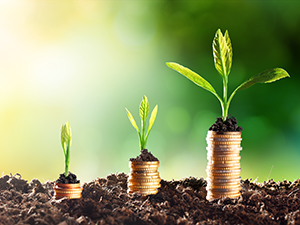
The American Cleaning Institute’s (ACI) fourth Sustainability Report, Foundations for Transformation, showcases the steps the cleaning product supply chain is taking to address the industry’s core material issues.
The 2017 report highlights the progress made by companies throughout the cleaning product supply chain to decrease the industry’s environmental footprint over the last two years.
“ACI and its members are building upon a legacy of leadership by evolving our sustainability strategy to reflect the critical issues identified through the first-ever materiality assessment for the industry, which debuted in our 2015 report,” said Melissa Hockstad, ACI’s new President and CEO.
“By weaving these critical issues into the fabric of our sustainability strategy and reflecting honestly on our progress to date, we hope to set the stage for leadership into the future.
“While we are very proud of the progress individual companies are making on the priority material issues, as an industry we recognise that we have much farther to go.
“We need to see greater engagement and participation from companies large and small in the transactions that make up the sustainability fabric of our supply chain. Now more than ever, we call upon the industry to consider bold collective actions that can drive momentum toward sustainable development.
“It is clear that the cost of non-participation will eventually catch-up to those who sit on the sidelines.”
Since its inception, ACI’s Sustainability Metrics Program has been tracking industry performance in categories including energy, water, waste and climate change/greenhouse gases, to showcase where member companies are doing well, and to highlight the areas in need of attention.
Report highlights
- Reduction in greenhouse gas emissions, totaling a 23 percent reduction during cleaning product formulation since 2011
- Increase in renewable energy use by 46 percent since 2011
- Report on waste management showed that 64 percent of the waste from product formulation was reused or recycled in 2015
While these statistics show that there has been progress in sustainability efforts since 2011, other categories tracked show there’s still work to be done on the industry level:
- Uptick in greenhouse gas intensity between 2011 and 2015, even though absolute emissions were down
- Lack of improvement in energy efficiency, remaining relatively consistent since 2011
- Increase in water intensity over the last two years despite initial declines in water intensity from 2011 – 2013
“ACI plans to continue to delve into the factors that may affect the metrics data, as we work to align the Metrics Program with member companies’ most material sustainability issues. We know our member companies are setting targets and making progress, which we expect to see in our future data,” said Hockstad.
“Ultimately, we are using the results from our 2017 report as a foundation for transformational change. As a trade association, ACI commits to leading the charge in sustainable leadership. We’re looking at innovative solutions to tackle sustainability and welcome interested stakeholders to join us in this endeavor.”
The 2017 Sustainability Report includes profiles of more than 30 of ACI’s member companies, outlining their sustainability efforts over the last two years. The report also features an updated summary of ACI’s social and environmental sustainability programs, as well as details on ACI’s scientific and research programs.
The following companies submitted metrics data for the 2016 Sustainability Metrics Program:
AkzoNobel Chemicals LLC
GOJO Industries, Inc.
Amway
Henkel Consumer Goods, Inc.
Arylessence, Inc.
Huntsman Corporation
BASF Corporation
International Flavors & Fragrances, Inc.
Celeste Industries Corporation
Lonza Inc.
Chemia Corporation
Lubrizol Advanced Materials
Church & Dwight Company, Inc.
MonoSol, a Kuraray Division
Clariant Corporation
Novozymes
The Clorox Company
Oxiteno
Colgate-Palmolive Company
Procter & Gamble
Corbion
Sasol
Croda
SC Johnson
The Dow Chemical Company
Seventh Generation
DuPont Industrial Biosciences
Shell Chemical LP
Ecolab, Inc.
Stepan Company
Evonik Corporation
The Sun Products Corporation
Farabi Petrochemicals Company
Twin Rivers Technologies, L.P.
Firmenich Incorporated
Vantage Specialty Chemicals
Givaudan Fragrances Corporation